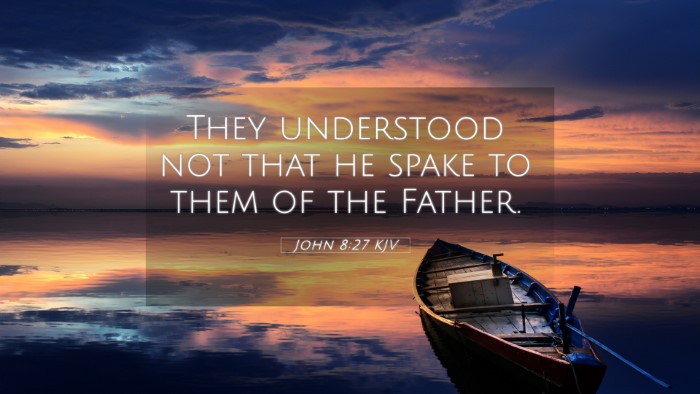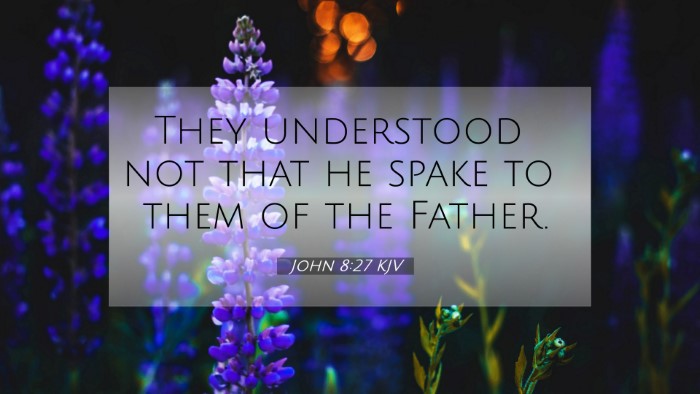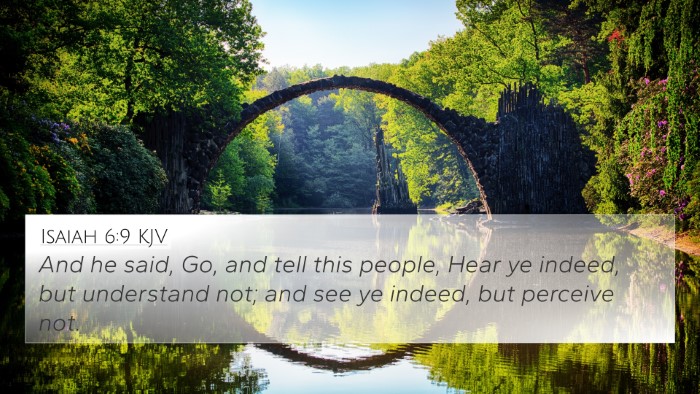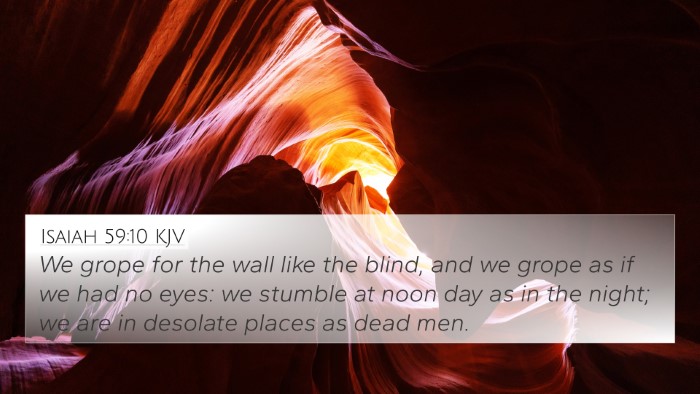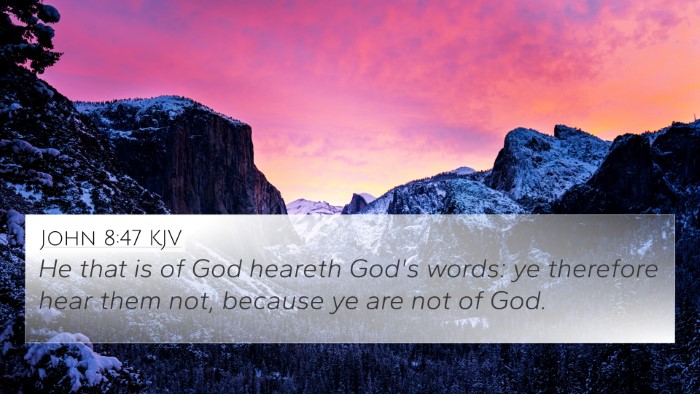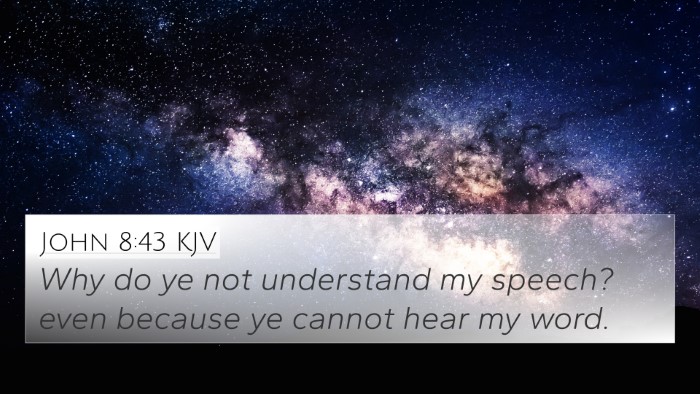Old Testament
Genesis Exodus Leviticus Numbers Deuteronomy Joshua Judges Ruth 1 Samuel 2 Samuel 1 Kings 2 Kings 1 Chronicles 2 Chronicles Ezra Nehemiah Esther Job Psalms Proverbs Ecclesiastes Song of Solomon Isaiah Jeremiah Lamentations Ezekiel Daniel Hosea Joel Amos Obadiah Jonah Micah Nahum Habakkuk Zephaniah Haggai Zechariah MalachiVerse
John 8:1 John 8:2 John 8:3 John 8:4 John 8:5 John 8:6 John 8:7 John 8:8 John 8:9 John 8:10 John 8:11 John 8:12 John 8:13 John 8:14 John 8:15 John 8:16 John 8:17 John 8:18 John 8:19 John 8:20 John 8:21 John 8:22 John 8:23 John 8:24 John 8:25 John 8:26 John 8:27 John 8:28 John 8:29 John 8:30 John 8:31 John 8:32 John 8:33 John 8:34 John 8:35 John 8:36 John 8:37 John 8:38 John 8:39 John 8:40 John 8:41 John 8:42 John 8:43 John 8:44 John 8:45 John 8:46 John 8:47 John 8:48 John 8:49 John 8:50 John 8:51 John 8:52 John 8:53 John 8:54 John 8:55 John 8:56 John 8:57 John 8:58 John 8:59
